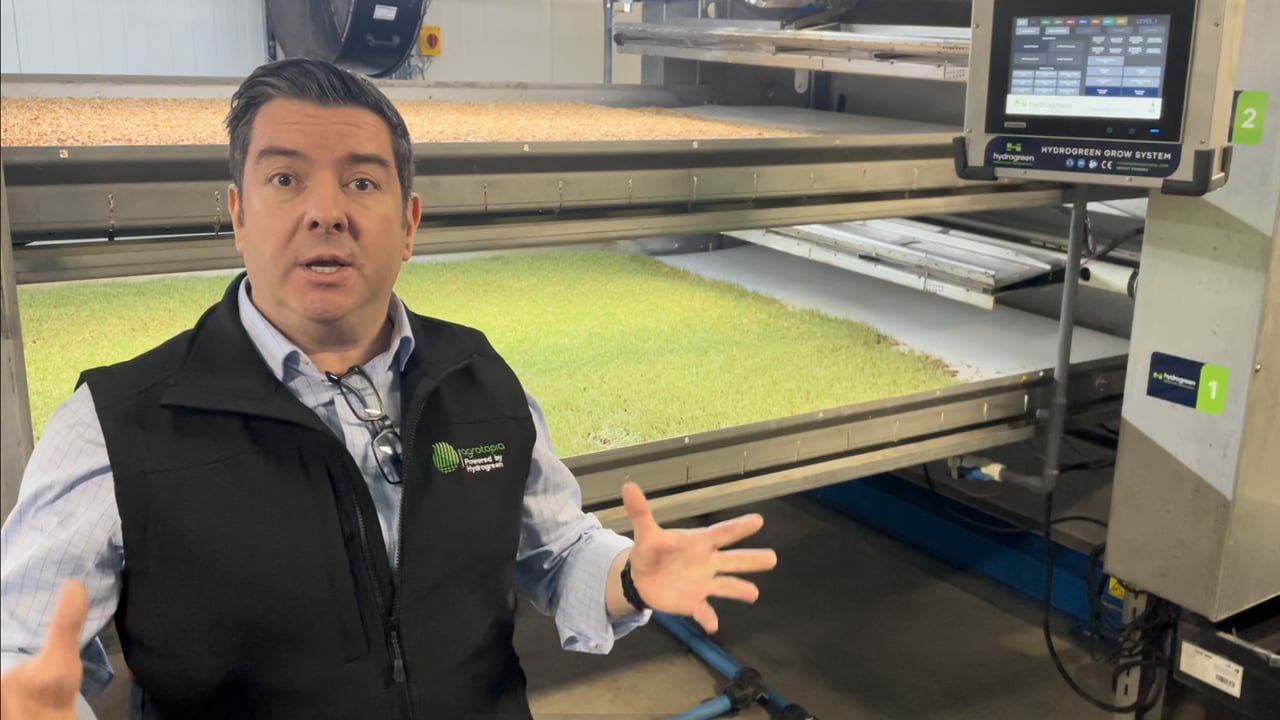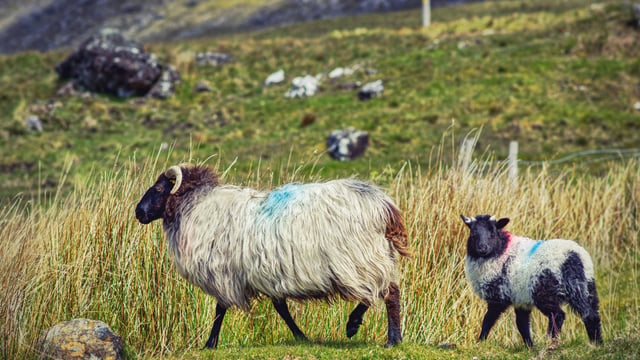Watch: Meath firm turning seed to high-protein feed in 5 days
A new startup company based in Balrath, Co. Meath is supplying a fully-automated system that grows fresh wheat-sprouts at an industrial scale by simply adding water and heat.
The new technology is being delivered by Agrotopia with the support of Meath Enterprise and the Boyne Valley Food Innovation District.
Agrotopia is based at Finnegan's Farm in Balrath, Co. Meath and Fiore Macari is the managing director of the company.
Agriland recently paid a visit to the Agrotopia headquarters in Meath to see its proof of concept unit.
Agrotopia boss Fiore Macari explained that the unit is the "first of its kind fully automated hydroponic vertical tower system that can grow fresh wheat sprouts at an industrial scale for the farming sector".
He said that the system is targeted "specifically for beef and dairy farms" but is relevant to other livestock systems as well.
"The unique patent technology comes from the US and is built by HydroGreen which is based in South Dakota."
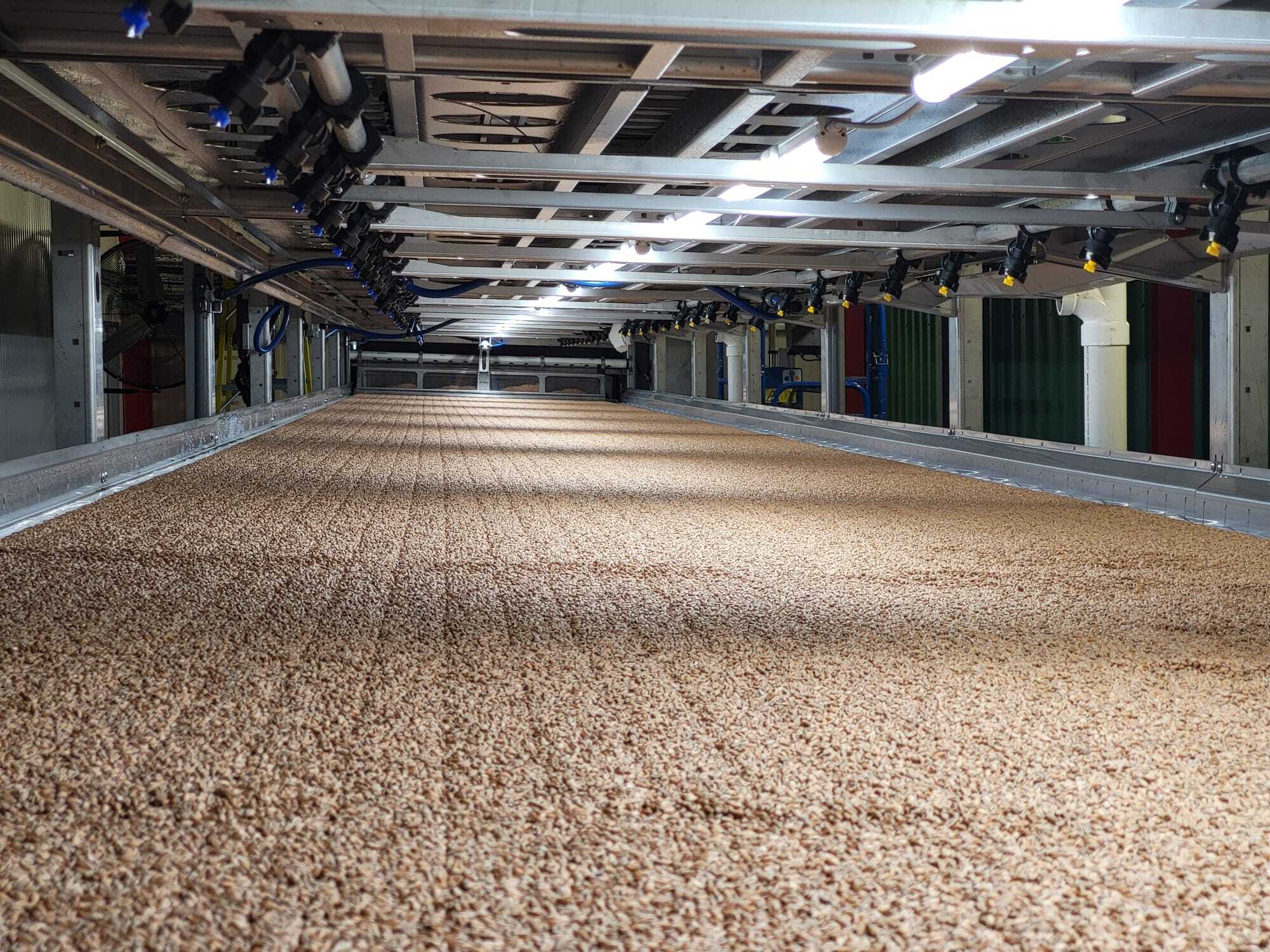
Macari said that Agrotopia has the "exclusivity for Ireland, the U.K, and parts of Europe and the Middle East for the equipment" and is showcasing it at Finnegan's Farm in Meath.
Trials with the produce have been conducted in association with animal nutritionist Gerry Giggins.
The system which produces the wheat sprouts is approximately 20m long, 2m wide and 6m high. There are eight levels on the system.
From the wheat is laid out on the belt until the wheat sprouts are ready for harvesting takes approximately five days and the system has the capacity to produce up to 16t/day of fresh feed.
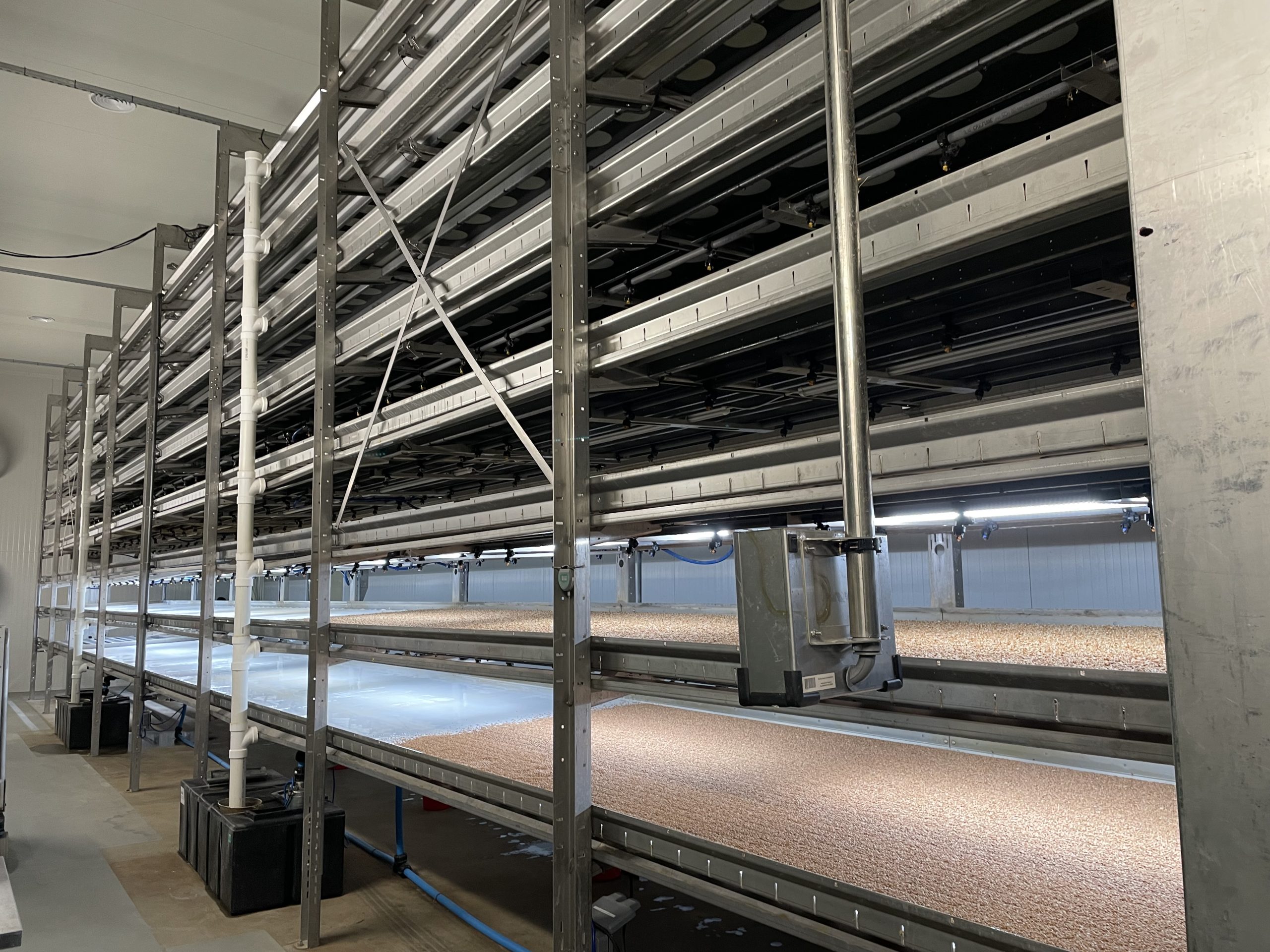
When the wheat sprouts are ready for harvesting, a conveyor belt brings the produce back towards a shredder where it is then shredded and goes onto another conveyor belt where it can be loaded for feeding. The process is fully automated.
Once the belt has been harvested fully, fresh grain is laid out on the belt again, also by an automated process.
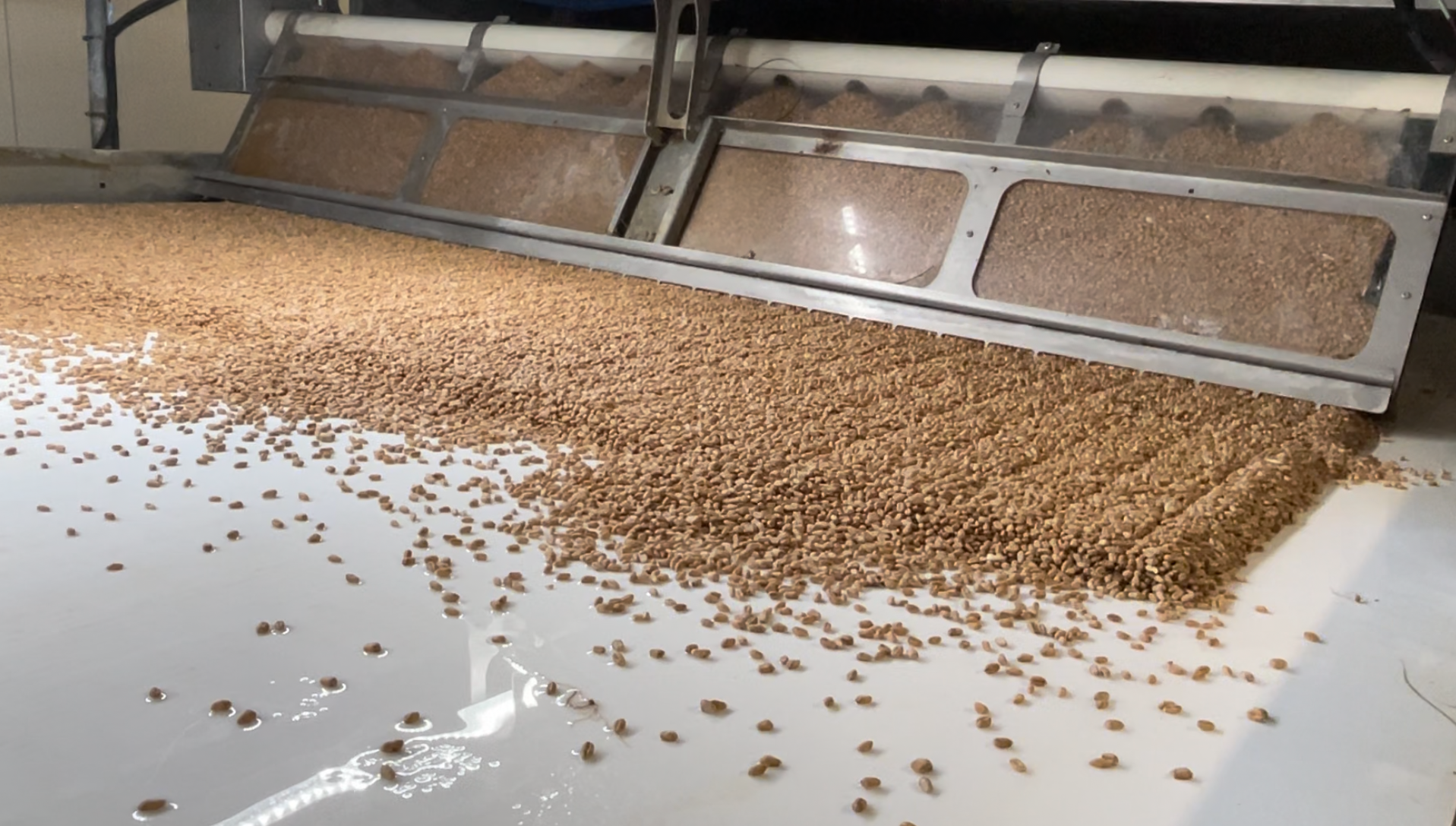
There are nozzles above each belt which spray water on the grain allowing it to germinate. The surplus water is collected off each belt and is recycled in the system.
Macari said: "Once it sprouts, you have a higher protein content, you have a higher soluble fibre content, you have a higher sugar/glucose content and its rich in vitamins and minerals.
"After a five-day growth, with zero fertiliser and chemicals, you're going to have an average of 24-25% dry matter so you're seeding 400kg grain, your getting just under 2,000kg of fresh wheat sprouts giving you a conversion of 1:5."
"It's clean, environmentally friendly, zero additives, zero waste, all indoors so it's not weather dependant and it's got a high digestibility.
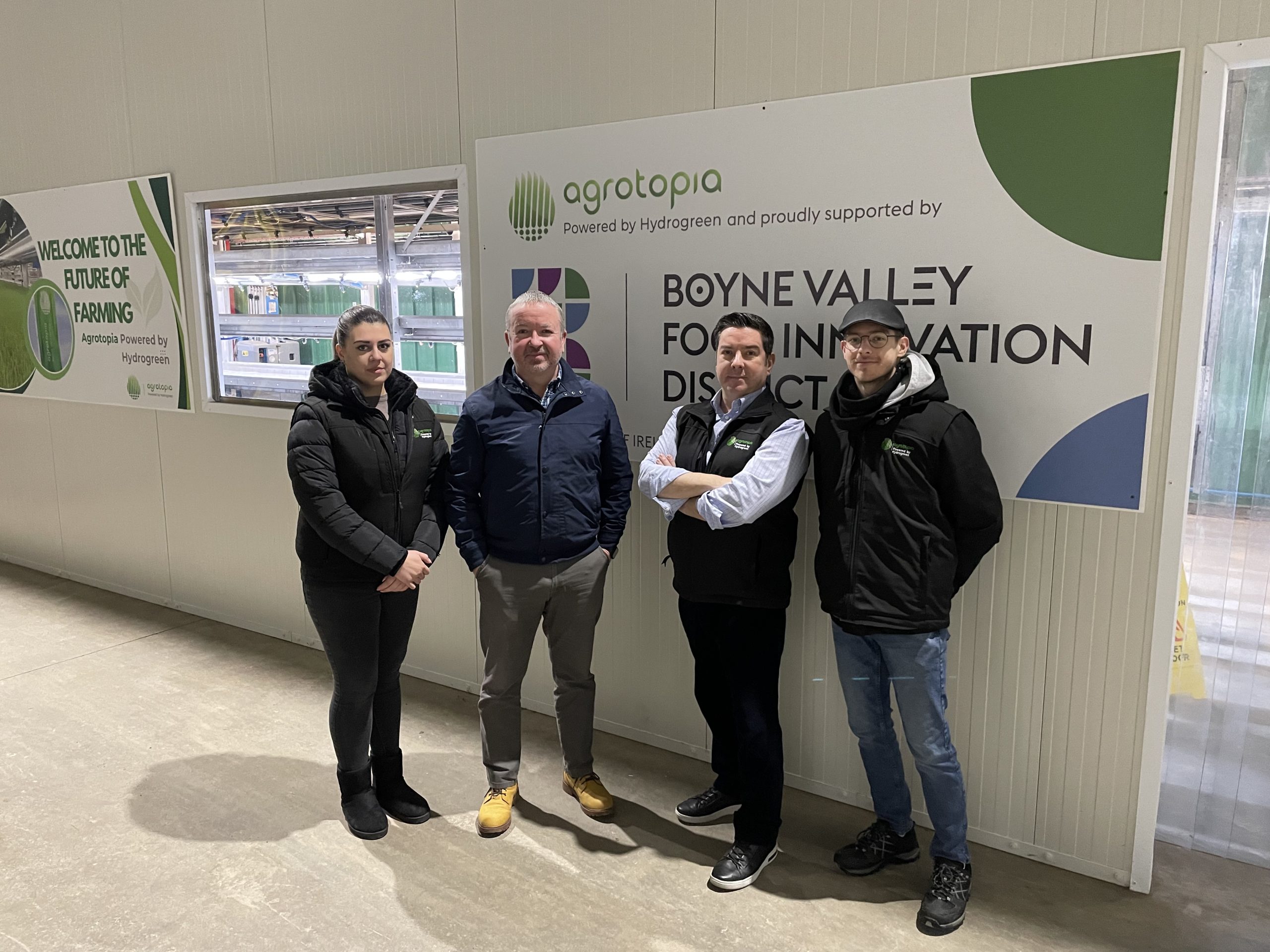
"We were never able to grow fresh wheat-sprouts at an industrial scale before and with this system, we can grow anything from 16t/day up to 130t/day, depending on how many of these towers we install in a unit."
Trials were carried out on the wheat sprout feed by animal nutritionist Gerry Giggins.
Speaking to Agriland, Giggins said: "When you sprout something, the green material rises the protein content and converts starch to sugars as well so you have a balance between starch and sugars."
He explained that wheat would generally have a protein content of 10-11% but the wheat sprouts have a protein content of 18-20%, depending on the stage they are harvested at.
He said: "We were trying to find the optimum harvest time with the trial and the wheat sprout protein content ranges from 17-22%, depending on the harvest point.
"A beef unit might need 18% protein but a dairy unit might need a 22% protein content and that's the beauty of it is you can harvest at the optimum time for what you're doing."
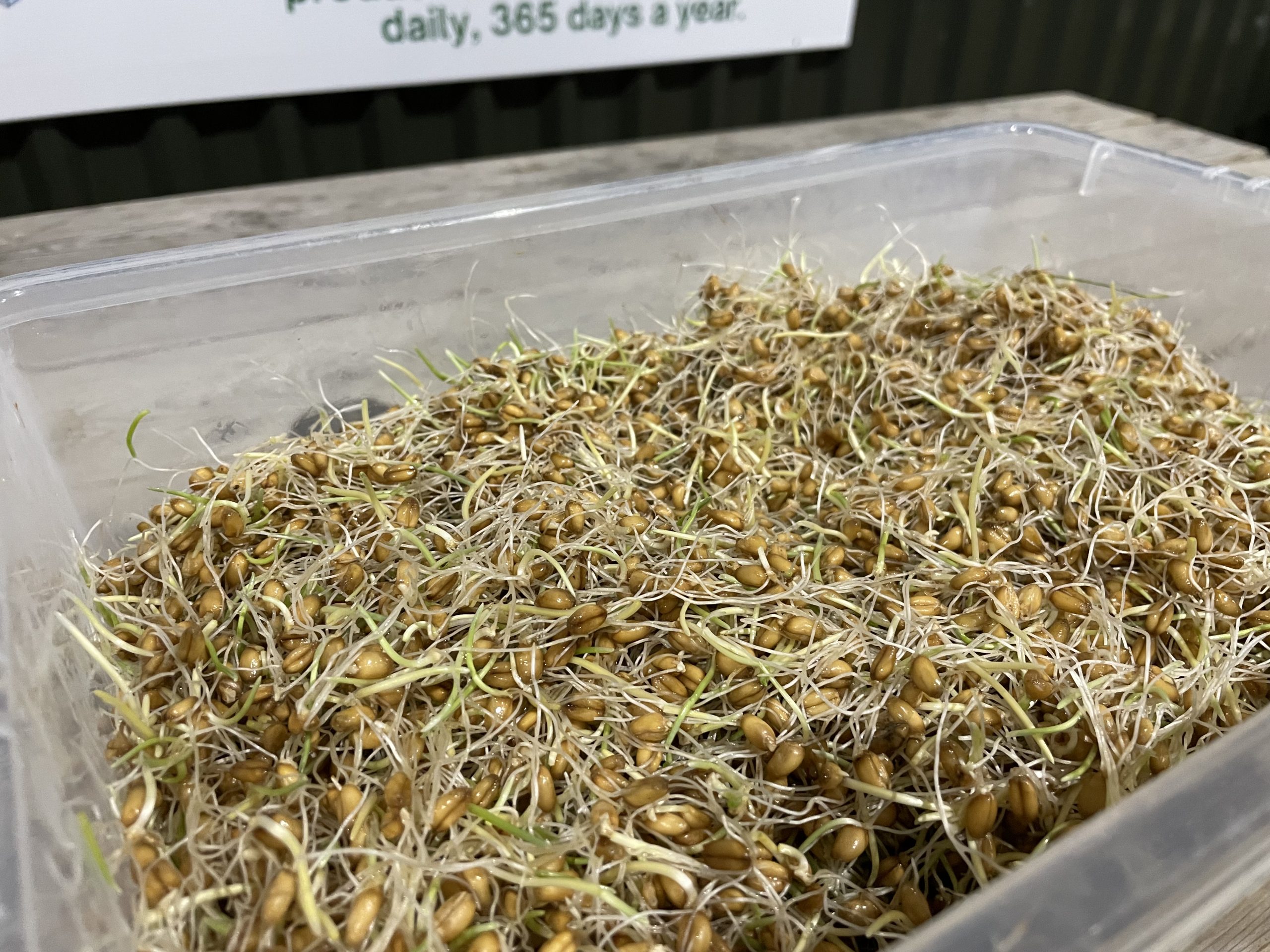
"It's a very sustainable feed. To get anything at that level of protein and consistency, it can be continually available at a significantly lower price than imported alternatives that's where I'd measure it on sustainability.
"In Ireland, we are looking at grass and clover but no high-quality forage is going to be able to match this from the point of view it's a forage, concentrate, everything combined and that's it's big plus," according to Macari.
Feeds with a dry matter (DM) below 65% are considered moist feeds so wheat sprouts are essentially considered as a forage by definition. The wheat sprouts can also be ensiled.
"As an animal feed, it's so perfectly well balanced. The process changes the energy source from all starch to a starch-sugar balance resulting in better rumen health and the sprout is also a fibre source," he added.

